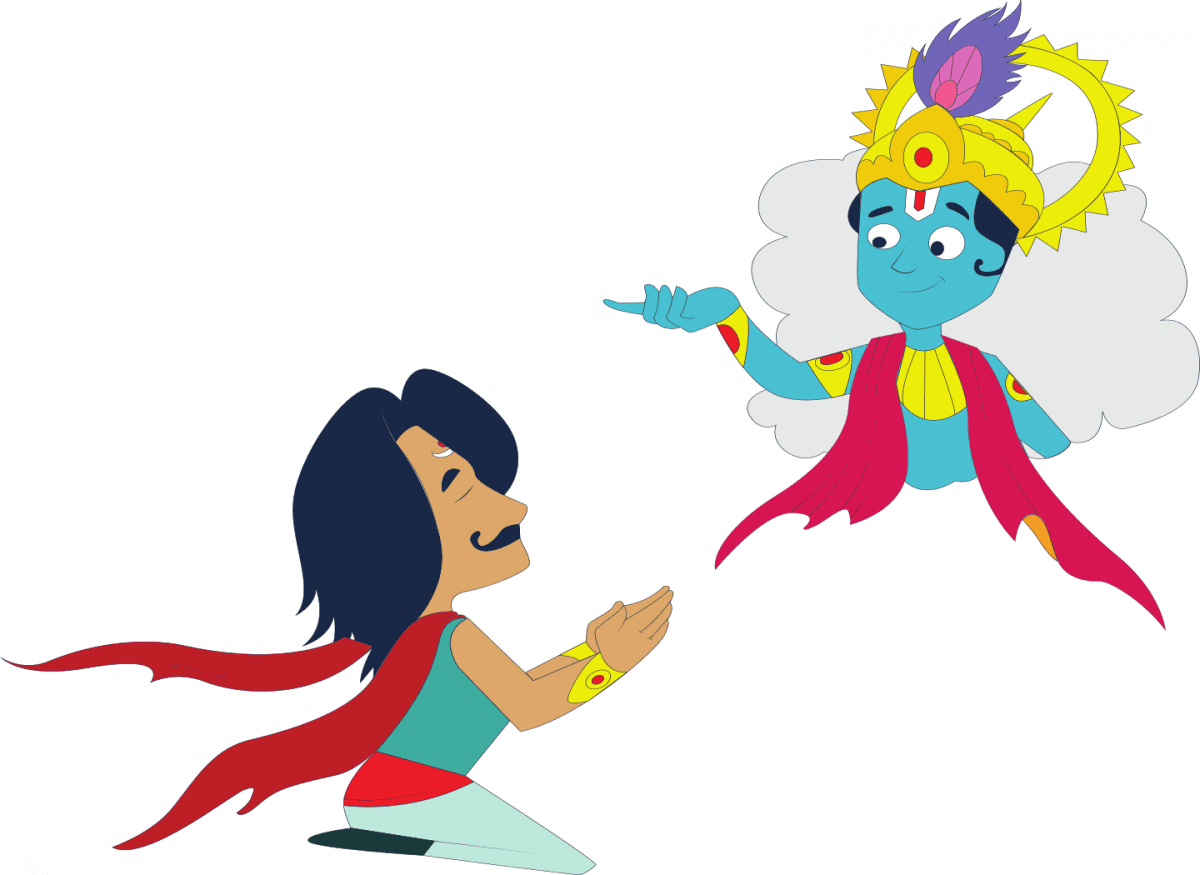You can read the previous part here: Chapter 1 Part 1
* * * * *
The Bhagavad Gita is perhaps one of the most practical scriptures in the whole world. Similar to books like the Bible or the Buddhist Sutras, it contains a whole ton of cures and solutions to problems in everyday life. However, again identical to the other scriptures, it is rarely read. Instead, it is tied with a red ribbon and put in front of a deity’s image. Afterward, it is worshipped daily and possibly recited from memory.
But can you understand that cure by simply chanting or worshipping? That’s what most people in the world seem to think. However, like any other book, you have to read and apply the teachings to reap the rewards.
Now let us pick up from where we left off. In the last post, we spoke about the importance of family unity, and how Arjuna’s family was corrupted. Arjuna now says to Krishna that it is a sin to fight against family, and is utterly wrong. And he’s right!
In any ordinary circumstances, harming your family is wrong. You never should hurt your family physically, and instead should fight with just your words. Not the tone of voice or physical attacks but simple, casual words. And that holds not only in ordinary situations but also in extreme circumstances.
Here, what Arjuna should have done was bring to mind that it was a war, and his cousins were simply enemies. Not family, not friends, but just enemies who needed to die for the world to be a better place. Of course, this is easier said than done, but you would think that an accomplished warrior like Arjuna would do this “small” thing!
Apparently not, though, as Arjuna states that he would rather die unarmed by the enemy’s hands than kill his family. He then proceeds to weep as he camps out in the middle of the battlefield and throws away his bow and arrows.
British poet John Donne once said, “No man is an island…,” and he was absolutely right. Everyone relies on something or someone, but Arjuna had nobody to rely on. His brothers were just as broken as he was, his father was dead, and his grandfather and teacher were fighting against him. He had no support, and as a result of that, he broke down. A family’s chaos can destroy everyone in it and around it, and Arjuna was right at the heart of everything.
Roman emperor Marcus Aurelius emphasizes the fact the universe is constantly changing in his book Meditations, and Arjuna would have done well to remember that! Change is constant, and one day you could be best friends with someone you are arch-enemies with the next. Again, this is easier to say than do, but that is what the challenge of life is about.
The first chapter of the Bhagavad Gita is known as Arjuna Vishada Yoga. Vishada means dejection, and Yoga means attaching. Hence, this chapter means Arjuna’s Attachment to Dejection. In this chapter, Arjuna complains about everything from his life to his family and his situation and more. He finally realizes how hard it is to go up against your family. What I find interesting about this chapter is that Lord Krishna is calmly listening to his friend’s woes rather than interrupt and tell Arjuna the solution to his problems. That almost makes me think that Krishna first wanted Arjuna to get everything off of his shoulders before he could start fixing his problems!
Venting out is a large part of fixing any problem, though not necessarily with another person. The best way to vent out is to shout at something such as a statue, a pillow, a teddy bear, or another inanimate object of that sort. That will make you feel relieved and others able to tolerate you.
Arjuna has vented out his sorrows and now needs a solution to his problems. That includes an attachment to his family, inability to do his job, and more. Lord Krishna has just been listening so far. However, he will start speaking in the next chapter of the Gita.
* * * * *
You can read the next part here: Chapter 2 Part 1









Comments are closed as per the author's request.
6 COMMENTS
Please login to read members' comments and participate in the discussion.